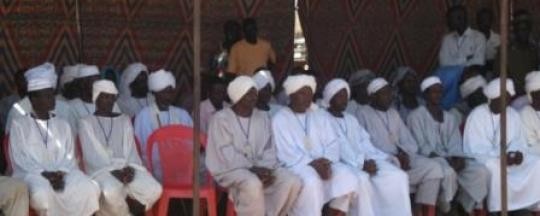Over 160 leaders from Dinka Malual and Messiriya tribes have resolved in a three-day post-migration conference held at Wanyjok in Northern Bahr el Ghazal State to form a committee to review the price of blood compensation following devaluation of the South Sudanese currency.
In a 2014 conference, the leaders of the two communities agreed that in case of any intentional killing, the blood compensation shall be 41 cows or its equivalent in money in the former of Sudanese or South Sudanese pounds, and that the killer shall serve a prison term that shall be determined by a court.
Each year the leaders of the two communities meet in the last week of May to review and to settle complains or pending issues before Messiriya cattle keepers return to back to Sudan. But this year’s peace conference was postponed after a Misseriya tribesman was killed in May in Aweil East County.
Gisma Ibrahim Ahmed, a Missiriya women’s leader, told Radio Tamazuj that she welcomes a move to make an adjustment in the area of blood compensation due to the devaluation of South Sudanese pound against the US dollar and Sudanese pound.
“This money or an equivalent of 31 cows is not completely enough to the family of the victim because if the victim has a big family and if you divided this 31,000 SSP to his or her family it cannot do anything and can be an equivalent of four cows in Sudan.”
She said in such a case, the blood compensation should be revalued at 150,000 SSP.
Luka Luac Nhial, a member of the Dinka Malual peace committee, said that even if the issue of blood compensation price was an important item on the agenda, he still wants the two communities to believe that peace is importance between them.
“In the time of war people are ups and downs and this is what happened now in Syria. All towers that have been built are completely destroyed and for them to rebuild such towers will take them almost 32 years but during the war they destroyed them within half an hour only,” said Luka Nhial
Other issues of concern discussed in the conference are unresolved cases of blood compensations for the people killed on both sides since years ago.
File photo




